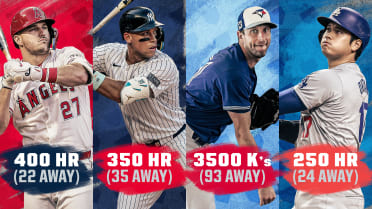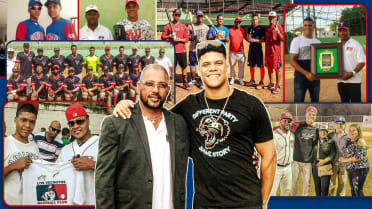This story was excerpted from Ian Browne’s Red Sox Beat newsletter. To read the full newsletter, click here. And subscribe to get it regularly in your inbox.
For several years, when the Red Sox went to Southern California, it gave agent Scott Boras the chance to meet up with clients Xander Bogaerts, J.D. Martinez and Jackie Bradley Jr. and watch them perform from his dugout-level suite.
Though all three of those players are now performing elsewhere, Boston’s trip to Anaheim this week presented Boras with his first chance to see Masataka Yoshida play in MLB games.
And that was something that gave Boras some enjoyment, given the many skeptical teams there were on the market that didn’t agree with the agent’s valuation of the left fielder from Japan.
“There were about three other teams besides the Red Sox that did [agree],” Boras said. “But we felt Fenway was an ideal place for him and it worked out great.”
To bring Yoshida to Boston, the Red Sox invested five years and $90 million, while posting $15.4 million to the Orix Buffaloes.
Yoshida mostly struggled in his first 14 games for Boston, slashing .189/.317/.264 with a double, a homer and eight RBIs.
But after that, he changed his stance and got used to pitch patterns in MLB and has responded with these numbers in his last 28 games: A batting line of .351/.402/.586 with nine doubles, a triple, five homers and 21 RBIs.
Why was Boras so confident Yoshida would thrive in the Majors?
“Flat bat swing and zone management,” said Boras. “Those were the two biggest factors, and then you put him at Fenway, where he can stay inside the baseball. You’ve seen it all now. It’s like, I just felt he was the perfect fit. I give [Red Sox chief baseball officer] Chaim [Bloom] and his staff credit because they certainly agreed with our assessment.”
Now, if the Red Sox can just fix one thing, Boras thinks Yoshida’s life in the United States will be perfect.
“I just need to get him true Japanese rice at the ballpark. I know the difference between American rice and Japanese rice,” said Boras. “They’re using American rice and I’m calling [Red Sox chairman] Tom Werner and [principal owner] John [Henry] and saying, ‘Can we get the Japanese rice at the ballpark?'”
Supervising Club Reporter Ian Browne has covered the Red Sox for MLB.com since 2002.




